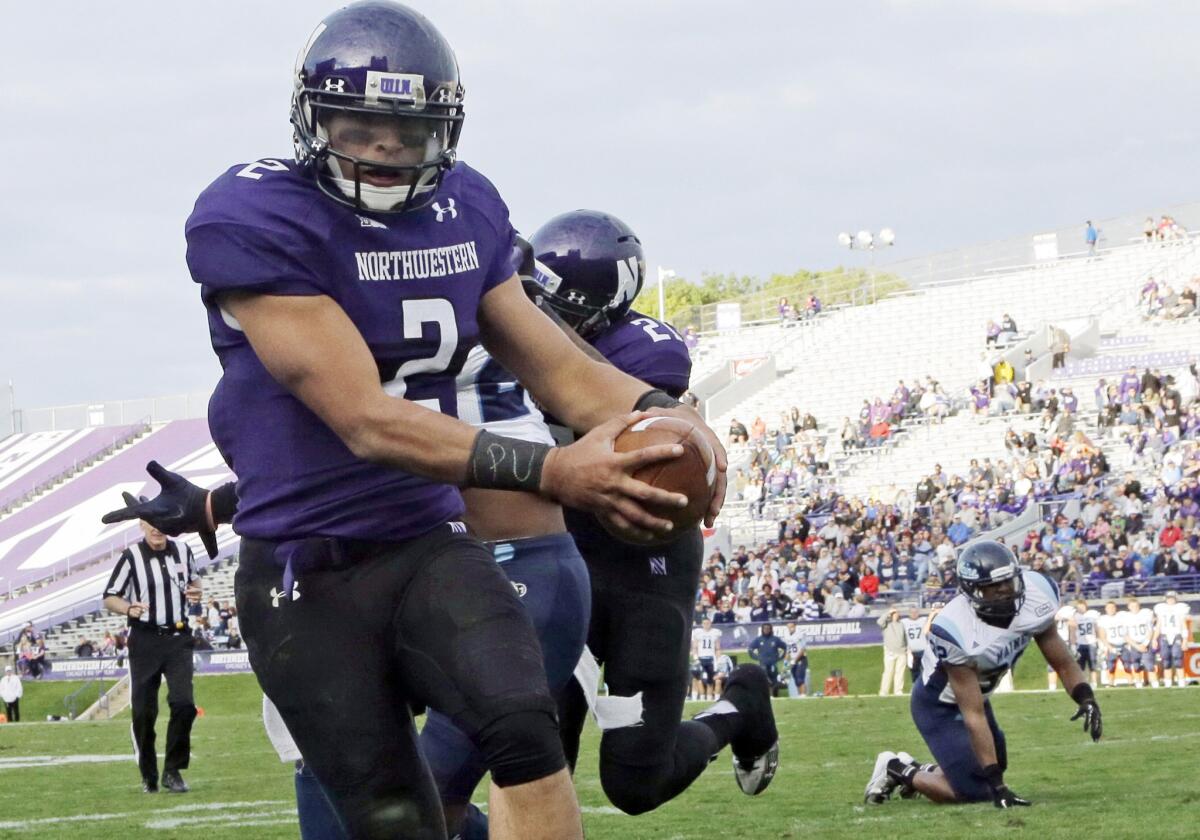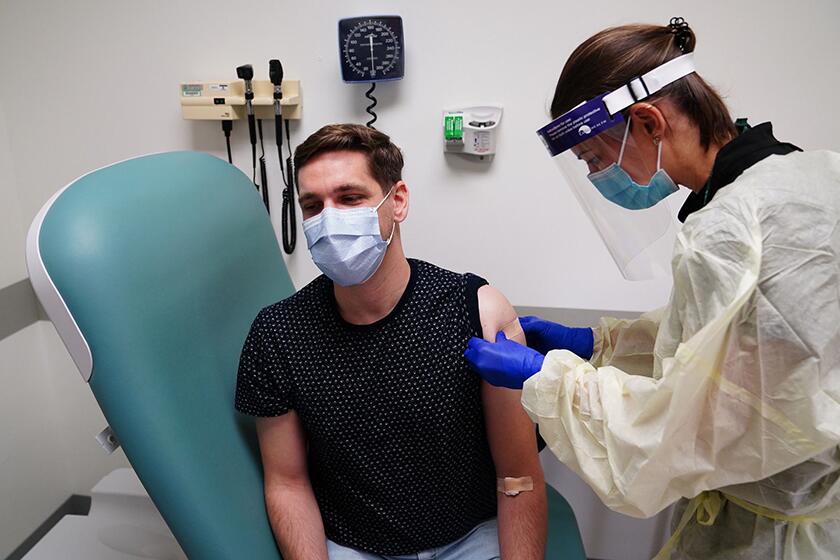If student-athletes are employees, give them a seat at the negotiating table

- Share via
Yet another nail went into the coffin of the NCAA on Wednesday. And for those who genuinely care about the well-being of college athletes, that couldn’t be better news.
Peter Sung Ohr, a regional National Labor Relations Board official, ruled that scholarship football players at Northwestern University aren’t student-athletes, as the NCAA likes to designate them, but rather employees of the school who generate vast sums of money for the institution. Players are compensated for their work via scholarships, and are therefore entitled to unionize.
“The record makes clear that the employer’s scholarship players are identified and recruited in the first instance because of their football prowess and not because of their academic achievement in high school,” Ohr wrote in his 24-page decision. He also noted that despite the romantic notion that college football players are students first, who elect to honor the reputation of their respective schools through extracurricular sporting endeavors, Northwestern was able to provide “no examples … of scholarship players being permitted to miss entire practices and/or games to attend their studies.”
As of now, the decision applies only to the Northwestern football team. But the language of the ruling could easily carry over to any major college athletic program should players file suit.
The notion of student-athletes in the context of college athletics is, of course, a farce. Former NCAA Director Walter Byers came up with the term in the 1950s as a legal maneuver to help the organization fight off workers’ compensation claims by injured football players.
It’s fitting, then, that the NLRB ruling was handed out to a football team. As our scientific understanding of how the game of football permanently impacts the brains of those who play it, the moral imperative to more equitably distribute some of the billions of dollars in revenue generated by those athletes is undeniable.
Last August, Syracuse lineman and Pasadena native Tyler Marona was forced to retire before ever playing a down after suffering a concussion in practice. Syracuse honored his scholarship, but it was under no legal obligation to do so. Plenty of college players have had their scholarships dropped after suffering similar injuries, or simply for failing to live up to overhyped performance expectations. Having your college education held for ransom based on your athletic performance does not make you a student-athlete, it makes you an athlete working for the chance to be a student.
As for any long-term health side effects these players may face from their college sporting endeavors once they are out of school, they’ll be on their own.
If Northwestern has its way, its football players will stay isolated. The school is appealing the NLRB’s decision. Here’s hoping that effort fails, and that other college players across America earn the same right Northwestern football has fought for.
College athletetics generate billion of dollars in revenue. The most recent television contract for March Madness alone was worth $10.8 billion. That money is spread around generously, just not to athletes. Ohio State Athletic Director Gene Smith, who earns $940,484 a year, recently received an $18,447.94 bonus because Buckeyes wrestler Logan Steiber won a national championship in the 141-pound weight division.
Should Steiber and college athletes like him be paid for such triumphs? I personally think so. But that’s not up to me. Here’s the rub: It shouldn’t exclusively be up to universities and the NCAA either. The players who generate the revenue, and who risk the physical danger, should have a seat at the negotiating table. Wednesday’s NLRB ruling is the first step in giving athletes that seat.
ALSO:
Chris Christie’s ‘Bridgegate’ given a $1-million coat of whitewash
Girls shouldn’t wear leggings to school -- and progressive parents should agree
Matthew Fleischer is a Los Angeles-based freelance journalist. Follow him on Twitter @MatteFleischer.
More to Read
A cure for the common opinion
Get thought-provoking perspectives with our weekly newsletter.
You may occasionally receive promotional content from the Los Angeles Times.










